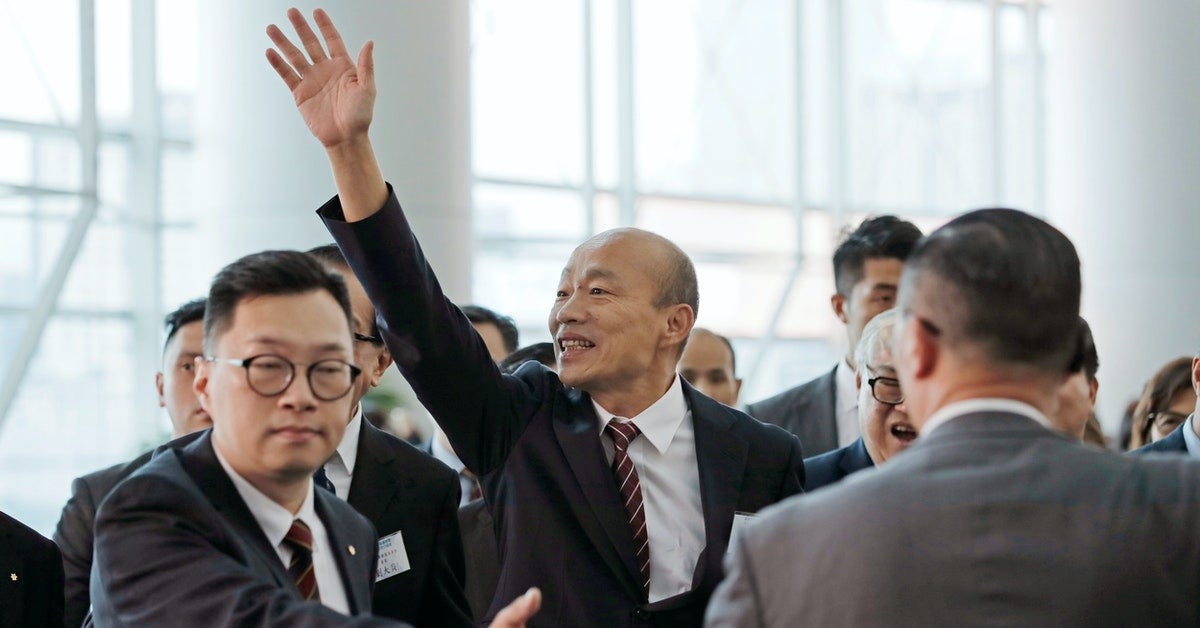Beijing’s Man in Taiwan Crashes and Burns
Han Kuo-yu fails miserably to expand power with China’s support

By: Jens Kastner
The astonishing political career of Han Kuo-yu, who came from nowhere to run for Taiwan’s presidency just four months ago, seems set to end on June 6 in disgrace in a recall vote that seeks to oust him from the mayoralty of Kaohsiung, Taiwan’s second-largest city.
Belonging to the Kuomintang, the island’s relatively-China-friendly main o…
Keep reading with a 7-day free trial
Subscribe to Asia Sentinel to keep reading this post and get 7 days of free access to the full post archives.
